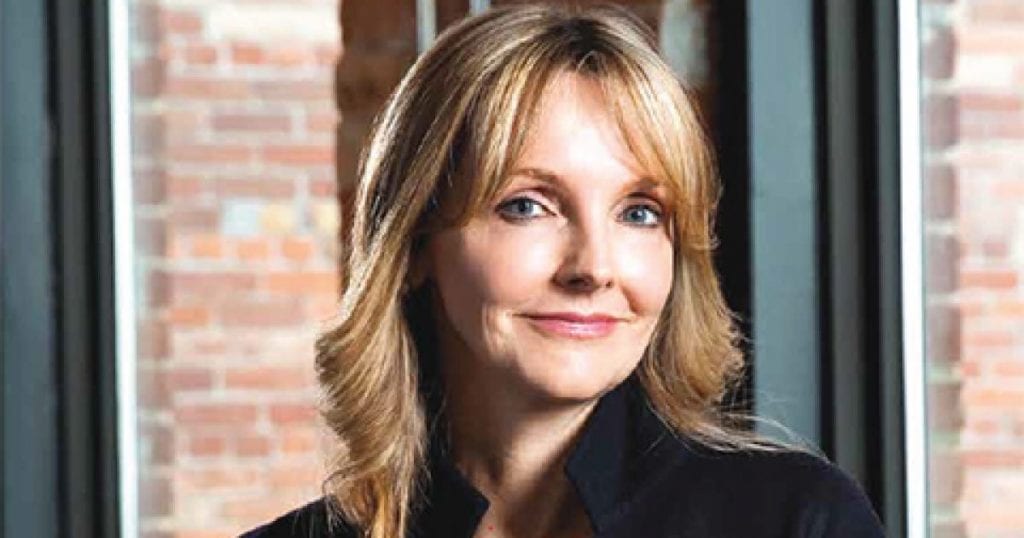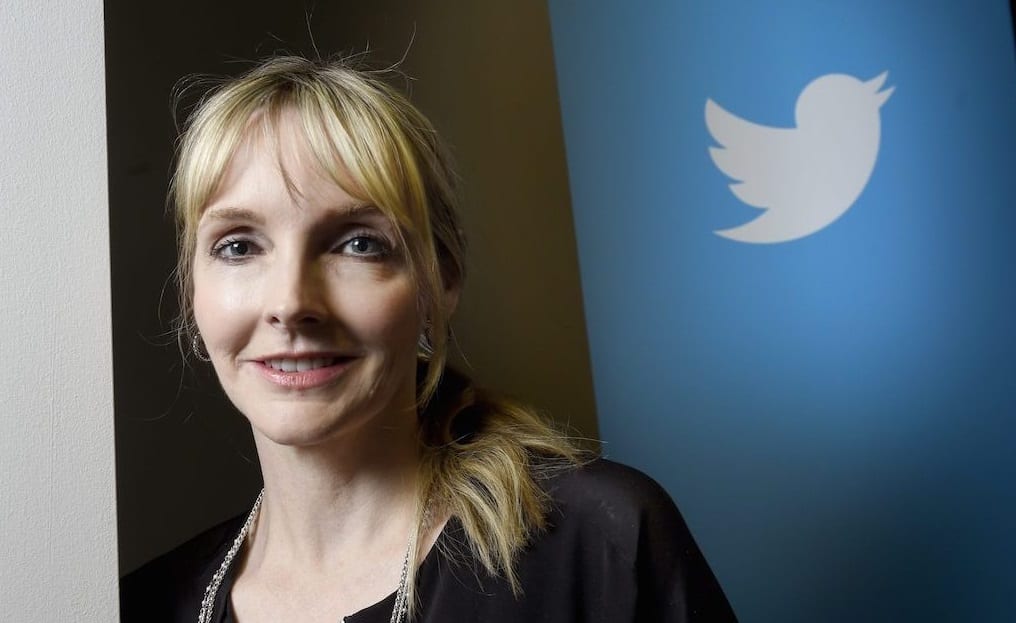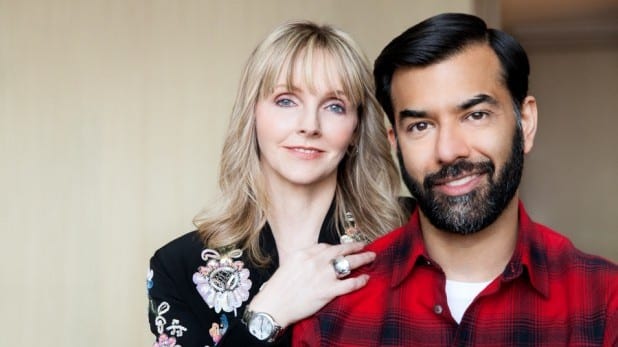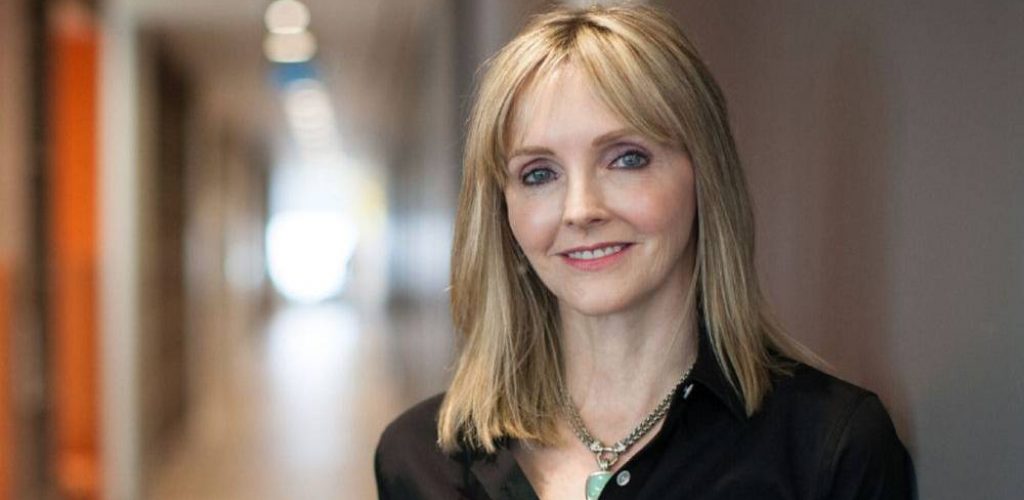Raj Girn: Hi, guys. Thanks for tuning in to another exciting episode of the `Transform Your Confidence Show.` Today’s show is a little bit extra special for me because I’m unpacking the leadership ideology of one of today’s most exponentially diverse and highly qualified media leaders who also happens to be a woman. Now, I’m not saying that it’s rare for a woman to be highly qualified. What I’m saying is that it’s rare for women to be in such high positions as she has been where she continues to carve out a path for women to follow in her footsteps. She is currently the head of Shaping the Future of Media at the World Economic Forum. And her name is Kirstine Stewart.
I have long admired Kirstine, actually, ever since 2006 when she came on my radar as the head of the Canadian Broadcasting Corporation, where she is credited to have revived the broadcaster’s relevancy with consumers, with shows like Dragons Den, Murdoch Mysteries and Schitt’s Creek. Following this role, she held the position of vice president of media for Twitter North America after heading up a successful launch of Canada’s Twitter office in Toronto. Prior to the CBC, she headed up Canada’s HGTV and Food Network, managing 37 international channels. As such, she is perfectly poised to give insights on this week’s theme of Leadership and Advocacy, where the two-part series is entitled `Why We Need More Holistic Leadership in Media.` We deep dive into leadership, culture, and how to best utilize the power of media today, both of which are mandatory requirements for executives and entrepreneurs looking to create deeper connections with their workforce and consumer base, both online and off.
Here is Part One of our conversation:

Raj Girn: Kirstine, welcome to the show. I’m such a huge fan, having followed your journey from Twitter to now the World Economic Forum and before that for the longest time at CBC. And you just made so many wonderful things happen there and just changed the game for a lot of what television was about during those times. I want you to know something. I have reserved having this conversation specifically with you, because the fact that you’ve held leadership positions in old and new media, in tech and are now at the intersection of both as the head of Shaping the Future of Media at the World Economic Forum, I couldn’t think of a more experientially qualified person to have this conversation with. And the fact that you’re a woman just adds a whole other dimension to the conversation. Thank you so much for agreeing to come on. I can’t wait to dive into this with you.
Kirstine Stewart: I can’t wait too. And I’ve been looking forward to having this conversation with you too Raj with everything you’ve done and you’ve built. It’s been amazing what you’ve been able to do in this new space. So I’m really looking forward to the conversation.
Thank you so much. This is a Madonna moment for me, by the way. Like, folks, you guys know that I have a number of people that I talk about that I think are incredible people just because the things they’ve done have just been, for me, rock star moment. So Kirstine is one of those for me. She’s like my Madonna. So I just want to put it out there before we begin.
Thank you.
OK, folks. So why we need a more holistic leadership in media today is such a big topic, especially considering how leadership and media are both separately going through extensive disruption brought on by technology, social diversification and a multigenerational workforce, amongst a plethora of other things. I feel that in order to do justice to this topic in the time that we have, I want to kind of take us on a high level, step by step journey of the need to knows because very few people are educated on leadership or media, for that matter, thus poorly equipped to know how to create strategy around both of these to benefit professional growth.

My goal by the end of the show is to arm everyone watching, listening or reading this to have a foundational understanding of what leadership is, what media is, how they intersect in today’s business and entrepreneurial arena and what needs to be done to reimagine the institutions and associated infrastructures that are still alive today that we live in, created 150 years ago during the Industrial Revolution. Very little has changed. And really what’s happening here is that the gap just keeps getting bigger and bigger and bigger. What we need versus what we have are two very different things. Huge, huge discussion. I want to tackle it by hitting up the leadership part first, Kirstine.
Sure.
What is leadership? I mean, your definition based on the things that you’ve experienced and, your career has really, it’s kind of been on this journey as these disruptions have been happening. So I’d love to know all the various touch points that you’ve been through. What would be a definition of leadership for you based on your experience?
Well, I find, and I’m sure, we’ve all had our own journeys, our own careers, our own experiences through our work life. And I think sometimes we confuse the term leadership for boss. And a lot of people get obsessed with being the boss and what that means and what that entails and certain entitlements literally to being a boss where they don’t really understand or appreciate the the obligation, the responsibility and the benefits and the privilege of leadership and how you can step up. And to me, leadership isn’t about, as it has been portrayed in previous generations — some, old, usually white, straight male sitting in a corner office dictating their version of what they believe to be the reality or the best way forward for their business and kind of sending out their orders from the corner office. Instead, businesses move so quickly today. There are so many inputs. Data flies around at light speed. And, you know, in order to really understand, you know, the best aspects of leadership, I think one has to kind of set the ego of being a boss aside and understand that leadership is about empowering others. Leadership is about providing others with the tools to be able to do their best work. And really, after doing that, after finding the right team, after making sure that they’re in the roles that satisfy their best, where they’re still aligned with what their goals and objectives are, giving them the tools that they need, it’s literally a matter of getting out of the way. Because if you’ve done that job right, then everything moves forward.
“Leadership is about providing others with the tools to be able to do their best work.” ~Kirstine Stewart
And I think once you provide the vision, once you provide the kind of overall sense of where everyone needs to row their boat to, you give them that boat, give them the ores and let them go. And I think that’s something that… I’ve worked my way up through my career. I have been in the lowest entry level position of the company. When I first got out of school, I worked my way up. I know what it’s like to have different kinds of bosses. I know what it’s like to live under a different kind of leadership. And I know what motivates me. And I saw what motivates my colleagues around me. And I think it is that empowerment. It’s that ability for a leader to inspire, to give you a vision that you can believe in and they can get behind, and then give you the tools that give you the freedom to go and do it.
Absolutely. And it’s interesting because every time I talk to a woman that’s in a position of leadership and a woman that’s literally started from the bottom and worked their way up, they always come at this a different way than people who are kind of built for leadership — people who come out of programs. So from from that perspective, you know that there are so many schools of leadership style out there. With all of the variables that are happening. You know, I prefaced some of the disruptions that are happening right now. Some of the changes that we’re facing in corporate infrastructure, in terms of one of the many examples is that we’re faced with kind of this whole social responsibility component. We’re also faced with multigenerational workforce, which wasn’t the case when you go back a couple of generations, because people would stay in jobs for a long time. And it was kind of a different dynamic of why we were working versus what a lot of the Zoomer and the younger generations are looking for is a very different idea of wanting a job and what that means to them and their value system. Based on, some of the things that… It’s funny, the point that I wanted to make here, and it’s a conversation I had with someone else, Kirstine, is that when you look at kind of the Maslow’s hierarchy of needs, right?

I put my parents in that kind of lower area where, even with all the success that they had and even with all that they accomplished over the years, they never kind of ever got out of that area of the survival, the need to always hold on to money and survive. They never got out of that mentality. Then people like myself, who are GenX, we kind of sit in that middle area. And it’s interesting because we have kind of that conditioning of the survival. So we want to kind of hold onto the money. But we also have a whole other idea of what could we do with this money that could potentially do more for us and do more for others. And then we’ve got my son’s generation where they literally are starting at the top. They are sitting at the top of the totem pole and they feel privilege and they feel their value system sits them right up there even though it’s an entry-level for them. So with all that said, my question for you here is there are so many schools of leadership style. How can someone know which to dial into? Like, it’s a very confusing labyrinth right now with everything that’s happening to all the new everything.
Yeah. And I think you’re right, Raj. I think you point out from what you just described as your kind of vision for what we’ve been going through generationally, and now you add on top of that all of the opportunity and access. I think every generation wants what’s better for the generation after them, like your parents wanting to have a better life and you’ll want your sons and daughters to have better lives than what we are having. And we do things in order to make that happen, like we enable that through the way that we support them, but also the way that the world changes. And I talk about how it’s it’s been interesting that I am a Gen Xer as well. And as a leader, somebody who’s kind of in that in-between generation, it’s kind of nice to sit in both worlds because I do think we understand I think we are good translators for what it’s like to be in the more traditional sense of what work-life balance looks like, what that value exchange is to what is expected today. I mean, a very kind of fast-paced, instant access, but yet success is not defined in the same way that it was in the previous generations.
And so I think we as the middle generation have kind of enabled that bridge between the two. And I think we benefit. You know, there’s a lot of times when I was starting out as a leader and at work, a lot of folks would see the next generation coming in as being somewhat too entitled. They didn’t have the work ethic that we maybe had in the past. And I think when you talk about leadership style and having to adjust generationally to how people work and how people value things, you’re only going to be able to motivate them if you tap into what they value. And so understanding what motivates that next generation, I think is incredibly important. And I think we sometimes used to put up barriers to understanding that. We used to say that they’re not working hard enough, that they come in entitled. All you would hear about was complaints about how to manage this new generation coming in. And I take a step back now and I say, actually, I’m very grateful for that generation coming in because we were the generation that felt that work-life balance didn’t exist, that it was all about putting your nose to the grindstone. There was no sense of division between life and work.

Credit: @fajomagazine
The new generation coming in has demanded a certain kind of relationship with their workplace. And it’s not based necessarily on money or title. It’s based on how they feel that their impact has been and what is their influence, what is their agency? How do they have control over their day-to-day lives? And I think as leaders of those original schools of thought around, you know, one form of leadership over another, we’re having to reinvent an entirely new form of leadership, building on those things that we’ve known in the past about how generally human nature works. But this new generation coming in has really changed the game to how work-life interaction behaves and how people value that exchange looks like. And so in order to get the best out of our teams today, in order to feel like we’re contributing in the way that matters, it’s a matter of making sure that they feel the impact that they can give on a day to day basis. And so that really flips the way that you can lead because it’s not about telling someone what to do. It’s about asking them what they want to do and figuring out with their skillset where do they best fit and how can you empower them to do their best work.
You know, that’s so insightful because it’s kind of like that inverted pyramid ideology where the CEO sits at the bottom and the workforce sits at the top and we direct things in a very different manner. So you obviously came from the other, as did I, with the pyramid that’s the right way up. How are you motivating this kind of whole other generation that wasn’t motivated the way you and I were like, how are you doing that?
I think it’s a lot of putting yourself in their shoes. Like, I think we see sometimes all of the shiny things that they have as benefits that we’ve maybe earned in order to get them. The fact that they have access to all these digital appliances, infrastructure, whatever you want to call it, we were the ones that kind of working together to get that in their hands because we thought it was to their benefit. And it is. And I think sometimes we get too fixated on what they have instead of recognizing where their unique challenges are. Because, yes, there is never more abundance, never more access to things today as there have been in any generation before. But there has also never been more challenge and more kind of frustration and more danger and a lot of ways, too.
“There is never more abundance, never more access to things today as there have been than any generation before. But there has also never been more challenge and more kind of frustration and more danger in a lot of ways, too.” ~Kirstine Stewart
So I think we have to put ourselves in a position to understand that things are not all rosy for the next generation. You’re talking about a generation of folks who are working day-to-day at jobs that could disappear at a moment’s notice. We’re looking at a gig economy. The social contract has changed between a worker and a place of work where you had lifelong jobs you no longer do. You might not even have a permanent job, a full-time job in any respect at all. So there’s a lot of access and opportunity for this next generation, but there’s a lot of risk for them. And I think sometimes it’s our responsibility to understand what the risks are and try to help them through the risks and mitigate them in whatever way we can.
Absolutely. You brought up a really great point there, Kirstine. Something that a lot of people maybe don’t think about so much, especially those of us who come from the more senior age groups. And that is this whole idea of leadership within an ecosystem. I mean, we used to look at… and this goes back to kind of the way that we’ve been trained in the way that our world and the infrastructure of society has been created. It’s been created on the Industrial Revolution. And since then, there hasn’t been enough of a change to allow us to be able to say that this infrastructure actually fits where the world’s going today, on what the value system is that we’re attaching to our lives, both personally and professionally. So I want to ask you this question. What impact can good leadership have on an ecosystem rather than just a company? Because that’s what you’re talking about here.
Because there is collaboration now, right? I think leadership is, again, we really associated it formally with the title boss. But leadership ultimately is a mindset. It’s a way of behaving. And you can be a leader… And I love to remind people of this because there’s a lot of times that as an individual with your own career path, you can feel frustrated or blocked because you might not see that next step or that next step might be available to you. And you feel like unless you have the title or that role, you’re not a leader. And yet there’s so many opportunities now to lead at different levels that you could be yes, you can be the leader of your captive industry. You can be the leader, you can be the boss of a business. You can also be a leader where you are. And I think, as you said, you know creating that ecosystem is to empower people at different levels, to have agencies to make decisions around what they have under their control. We talk about this kind of industrial revolution.

The digital revolution has been one that’s really put information and power into the hands of the individual. And that individual sits at every level. And so if you have the capacity to turn on that knowledge, to turn on the information access, and you’ve got the wherewithal and the smarts to actually turn that into something actionable, you can lead at any level. And so that building, that ecosystem is building connectivity, building relationships with others, building the sense of community and belonging so that you’re all kind of working towards a common purpose or a common goal or at least finding people who want to share that common goal with you. And therefore, then you can move the needle so much faster. It’s about individuality, definitely, because now as individuals, we’ve never had so much power.
There’s more power in the cell phone than there were in rooms and rooms of computers back in the day. But now with all that power and harnessing it and actually putting it towards something good means you need to bias to collaboration. How do you then work together? What is the common value? Where do you feel fulfilled? It’s beyond your paycheck. It’s beyond your role day-to-day. It’s what was your impact? At the end of the day, it’s not the sales numbers you achieved, it’s not the medals that you are awarded. It’s how did you make a positive impact on the world? And I think people very much associate success with that now instead of the numbers or the or the bottom line. And that’s a great thing.
Absolutely. You know, it brings something to my mind, Kirstine, is, you know, the underlying denominator in your career trajectory has been that you’ve been in the “communications industry,” right? Does that have do you feel that gave you a leg up in the understanding that you just finished saying that connectivity is the key here? I’d love your feedback on that.
Yeah, absolutely. And I think it’s funny because when I went to University, I thought I would come out being in publishing because I have the very, very specific, maybe very useless degree and theory and criticism of English literature. Which to me was something that was incredibly inspiring. I was very passionate about it. And I wanted to learn everything about English literature and criticism and it made a lot of sense at the time. But then I’d looked at the real world and thought, well, what can I do with this degree? I’ll go into publishing. And then suddenly, at the time, publishing was something that kind of was not the fertile job industry that I thought it was going to be. It was a time at which it kind of the bottom it collapsed in the market when I graduated. So looking at what are the tenets of what I learned? Like what is the basics of what I understand through storytelling, through communication, through being able to connect and identify and communicate in a way that expresses kind of collective goals and aspirations. And I think that connectivity and that ability to be able to tell a story but tell a story that’s not necessarily yours and understand other stories I think has been incredibly valuable to me as I’ve moved from my career.
I think that that also is a testament to some of the shows, like the groundbreaking shows that you brought on to CBC that really changed the game for the entire media house and also for the idea of what TV should be, like the representation piece. You know, I really feel that. I’ve been following you for a long time. I’m such a super fan as I keep mentioning. And the reason is, is that I’ve seen that the things that you’ve done as you’ve been on your journey have created impact. And I feel that that’s the point that I want to make sure everyone gets out of this conversation with us today is, yeah, you mentioned that people have this idea of leadership being that they need to be a boss. And then there’s someone like you who has this idea that leadership is about making a difference, changing something, connecting to something that’s larger than the title or the role that you think that this needs to be and actually become a leader that makes a difference. I’ve seen that with you. I mean, I don’t know if that was something that was conscious with the or if it was more of a subconscious part of your DNA. But I just wanted to tell you that this is kind of something that I’ve seen along your journey. I don’t know if you want to comment on that at all.
“Leadership is about making a difference, changing something, connecting to something that’s larger than the title or the role that you think that this needs to be and actually become a leader.” ~Raj Girn
Sure. Well, I think ultimately, again, we’re all human beings in the world. And I think it’s a matter of what is your set of values as you enter the world and what you do on a day-to-day basis. You know, what you want to take away from it. And it’s also how you want to be treated too. Like ultimately, as I said, I had actually the great privilege of rising up through a business, through an industry, working job to job, kind of understanding what it’s like to be at different levels, different fields. And I think that’s a huge benefit because I’ve learned what it’s like to be treated as somebody who’s part of a team by others who are trying to lead. And I think that kind of lesson you learn, as I always say, you learn as much from the good bosses you do from the bad bosses. And that’s sometimes surprising to people. But it’s the good bosses that stay with you. And you think about what motivates you in your time with them. And it goes beyond their incredible smarts or their ambition. It actually goes to how they made you feel. Did they make you feel empowered? Did they make you feel like you actually made a difference and that you contributed as well? And I think in knowing that that’s what motivated me, I presume that’s what would motivate others.

And so in doing that and taking step by step and finding that every time I was to step forward and enable others to do great work. That’s what I figured my job was. Like, I think the CBC is a great example, Raj, where you mentioned. When I came into the CBC, it was at its lowest rated ever. And I think there was an expectation that me as the new kid coming in, I was going to bring a whole new team of talent that was going to wipe out the old and bring in the new. And to bring in the new you don’t necessarily need to switch out the talent that’s around you. Actually, there was a huge amount of depth of talent that was already there that just needed to be given keys, just needed to be given a bit of hope and a little bit of vision around what was possible and given the support to do so. And then I think that was my biggest lesson of leadership was in that role, in learning that it wasn’t a matter of starting from scratch and building what… As a boss, you’re told you can do whatever you want. As a leader, I think you understand you have a responsibility, again, to do something that might be a little more difficult, but in the end is such a great investment because look, what’s happened. The CBC completely turned around and continues to keep turning around in the time after I’ve been gone. And I think it has to do with the fact that there’s a group of people there who are empowered to do good work. And I think that’s the best testament. That’s to me, the best kind of reward.
Absolutely. Is to be able to leave a leadership culture as a legacy is just incredible. So let me ask you this, because you kind of touched upon it, but we didn’t really go into it. What impact can bad leadership have on so many things? But let’s kind of keep it in the company morale space, since a lot of what you’ve talked about has been based on connectivity and empowering of people. So a company morale is a huge part of that style of leadership. So let me just ask you again, what impact can bad leadership have on company morale?
It’s obviously directly connected. And I think everything does start from the top. And even though there have been great examples of companies that can thrive even under questionable leadership or tough leaders, you know everyone has heard there are things out there of hugely successful companies that have not necessarily been the most empathetic or sympathetic leaders. But I think it’s the impact of the legacy they leave behind. I think that probably more proof point to the true value of their success. The bottom line might look good, but in the end, what are they really leaving in terms of generational change and growth? I think, that the sad thing about bad leadership — and I felt it when I was being badly led, I’m sure that all of us feel that way — is the opportunity cost. If you are in a position, and I get this question a lot because there’s not necessarily the upward movement that there was in the past, there was this sense of if you if you do your time in a role, you’re going to get your promotion, you’re going to move to the next level.
With the gig economy, with everything that has changed in the way that we work, that tradition is not necessarily there anymore. So you end up with a lot of frustration and a lot of it comes down to, unfortunately, bad management and not understanding how to prepare and empower, again, people to do their best work in the role that they have and kind of building this expectation that you have to have the next role in order to feel satisfied. So giving people the leeway or the kind of grace to say, I can be happy where I am as long as I’m doing good work, that comes down to a leader letting somebody do that. And I think the opportunity cost of not letting your teams fire on all cylinders and in some ways keeping them down or not optimizing them or just letting it go to waste is such a sad thing. And I think that’s the most dangerous part of bad leadership is bad morale leads to bad efficiency and all those things as we know. But what an opportunity lost if you don’t take advantage of a fantastic team that’s under you, built around you. That would be the sad part.
“The most dangerous part of bad leadership is bad morale leads to bad efficiency and all those things as we know. But what an opportunity lost if you don’t take advantage of a fantastic team that’s under you, built around you. That would be the sad part. ” ~Kirstine Stewart
Absolutely.
Thank you so much for staying till the end, guys. I really hope you enjoyed the show and will action the many insights that were shared, some of which are a part of a larger discussion about how fractured our current infrastructure is because it hasn’t seen the same rate of evolution that digitization, social, and ethical responsibility and multigenerational workforce values are demanding. If you haven’t already done so, an excellent example of exploring some of these concepts can be read in Kirstine’s best selling book, Our Turn, that addresses a lot of this from the female leadership perspective. I highly recommend that you go pick up a copy because it’s both insightful and easy to read. The best kind of self-help book, right, guys? My hope with this episode is that it will open your mind to think about your own relationship with leadership and authentic storytelling to further deepen your relationships down and across your ecosystem.
If you found this episode to be valuable, I’m so glad. I ask that you subscribe to this podcast. On the Apple, Android and Spotify platforms search `The Transform Your Confidence Show,’ on our YouTube channel at The Open Chest Confidence Academy, and if you’re an avid reader, we’ve also transcribed every podcast into a blog which you can access at TheOpenChestConfidenceAcademy.com/media/our-media, and please share with your networks so that they can also garner insights that I bring into each carefully curated show. And I invite you to join me in my private Facebook group at The Transform Your Confidence, where I share knowledge and resources about mindset, media, communications, branding, marketing, leadership and advocacy for busy executives and entrepreneurs like you who are seeking to elevate the quality of their life. I pop in the group regularly to answer questions that members may have on any of these topics. So hop on over. It’s free and insightful and full of great networking opportunities with people from around the world who, like you, are seeking to grow, level up and accomplish the next big thing in their lives. As always, thanks for tuning in, guys. And until the next episode, take care of yourself.












